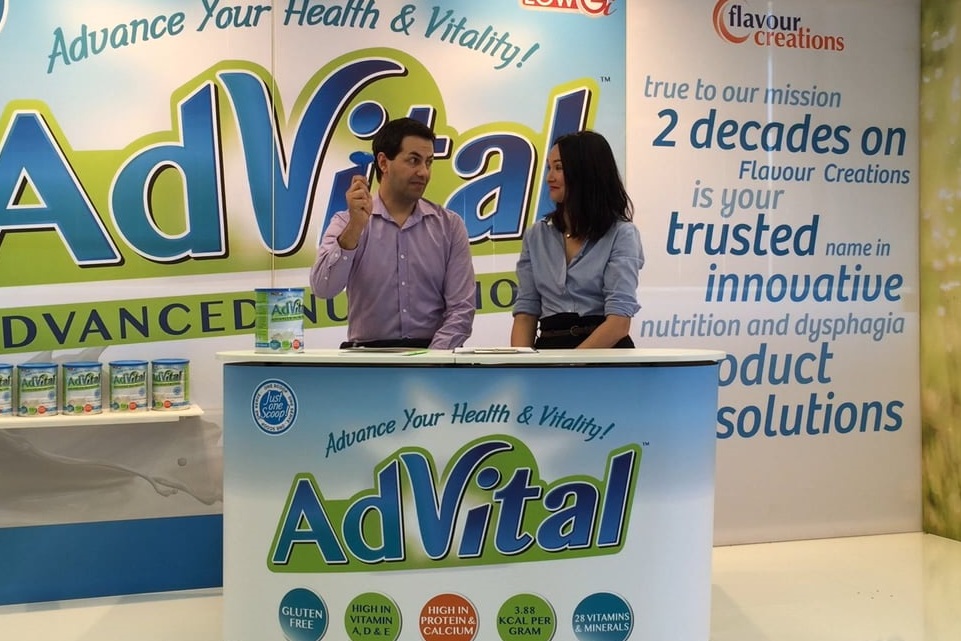WHAT DOES A FOOD SCIENTIST DO?
If you were to ask your friends and family what a Food Scientist does, you’ll probably get a comment that you’re a ‘chef’? This is certainly not the case, we are scientists! There are so many directions the food scientist’s career can take, from New Product Development, Research, and Quality Assurance, through to Procurement, Business Management, Technical Sales and so on – there is much variety in what a standard day could bring the food scientist. There are multiple departments within a business that a Food Scientist is often required to provide technical knowledge and support. Life as a Food Scientist can be very challenging with many and varied work tasks in a rapidly evolving industry.
WHAT DO YOU WORK IN AND WHAT IS YOUR SPECIALTY?
I’m currently Head of Technical and R&D Manager at Flavour Creations, a nutritional solutions company specialising in dysphagia management, and have been in the role for 9 years. Previously, I held the position of Product Development Manager at Trisco Foods, and have worked for the both the State Government and internationally as a Food Technologist.
In my current role at Flavour Creations, I lead a team of 9 food scientists, and this role has afforded me wonderful career exposure in the form of opportunities to present to industry bodies, travel to international trade shows, and pitch new product concepts to multinational organisations, experiences I could only have dreamed of back in my university days. I am part of the Senior Executive Management Team for the business and have an integral role in shaping the strategic direction of the business.
HOW DID YOU BECOME INTERESTED IN THIS AREA AND WHEN DID YOU FIRST START?
When I left school I wasn’t clear on my career direction, and ‘stumbled’ into food science, and have never looked back. I’ve always had an interest in science, and like experimenting during school and loved food, so it seemed like a good fit. I studied the ‘holy trinity’ of science at school – chemistry, physics, biology, and this background served me well at university.
WHAT STUDY PATH HAVE YOU TAKEN TO GET HERE?
I studied a four year Bachelor of Food Technology at the Univeristy of Queensland. I really enjoyed the course, especially with high practical component involving many and varied food experiments and a semester of industry placement, which is a tremendous opportunity for workplace exposure, and to this day I still take students and mentor them for their industry placement.
WHAT DO YOU LIKE MOST ABOUT YOUR JOB?
Technically, the role is very challenging . We work with novel ingredients and unique stabilisation systems, and are constantly learning about materials and there interactions.
The Product development component of my role consists of anticipating our clients needs for now and in the future to offer greater variety of choice and ultimately improved quality of life, so we are genuinely trying to make a difference for those suffering from Dysphagia.
I genuinely love the fact that I work for an Australian owned company making genuine new products, that compete in dynamic food marketplace. Another personal favourite part of my job is the sensory analysis, which is the taste profiling!
DO YOU HAVE ANY PARTICULAR CAREER HIGHLIGHTS?
Several years ago I was lucky enough to be elected as Australia’s representative for the World Youth Forum on Food Science, called LEAD 360, hosted by Institute of Food Technologists (IFT) in Chicago. Lead 360 was global gathering of 20 future leaders in Food Science from around the world, and we were tasked with developing ways of improving the profile of Food Science and Technology. We also discussed food security extensively, and feeding the expected world population of 9 Billion people by 2050. Lead 360’s goal: was that every person on the planet has access to safe, healthy and abundant food, and to this day many of the group still meet and talk about ways we can improve food security.
WHAT ADVICE WOULD YOU GIVE TO SOMEONE INTERESTED IN WORKING IN THIS AREA?
Find a mentor, learn off those who have experience and are successful Food Scientists mentors and get involved in your industry – in food science that could involve joining organisations like IFT and the AIFST. You need to be involved in the profession, and involvement helps you keep abreast of industry developments and challenges.
I still feel lucky to have found food science, and my profession has given me a rewarding career, our future as food scientists is bright, as we have considerable challenges ahead in feeding the worlds growing population

Name
Jeremy Betros
Career
Food Scientist
Current Role
Head of Technical, R&D Manager
Flavour Creations
